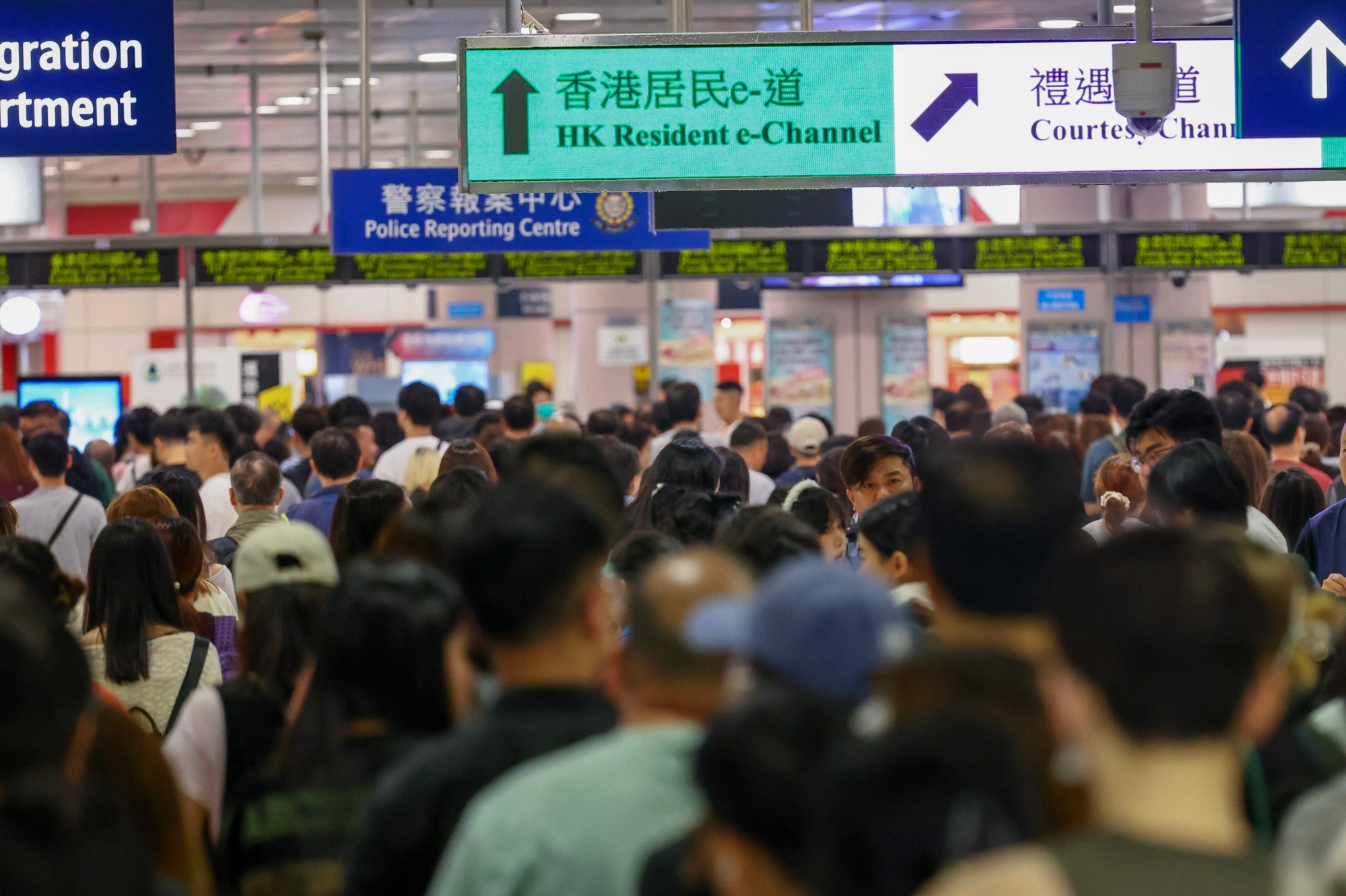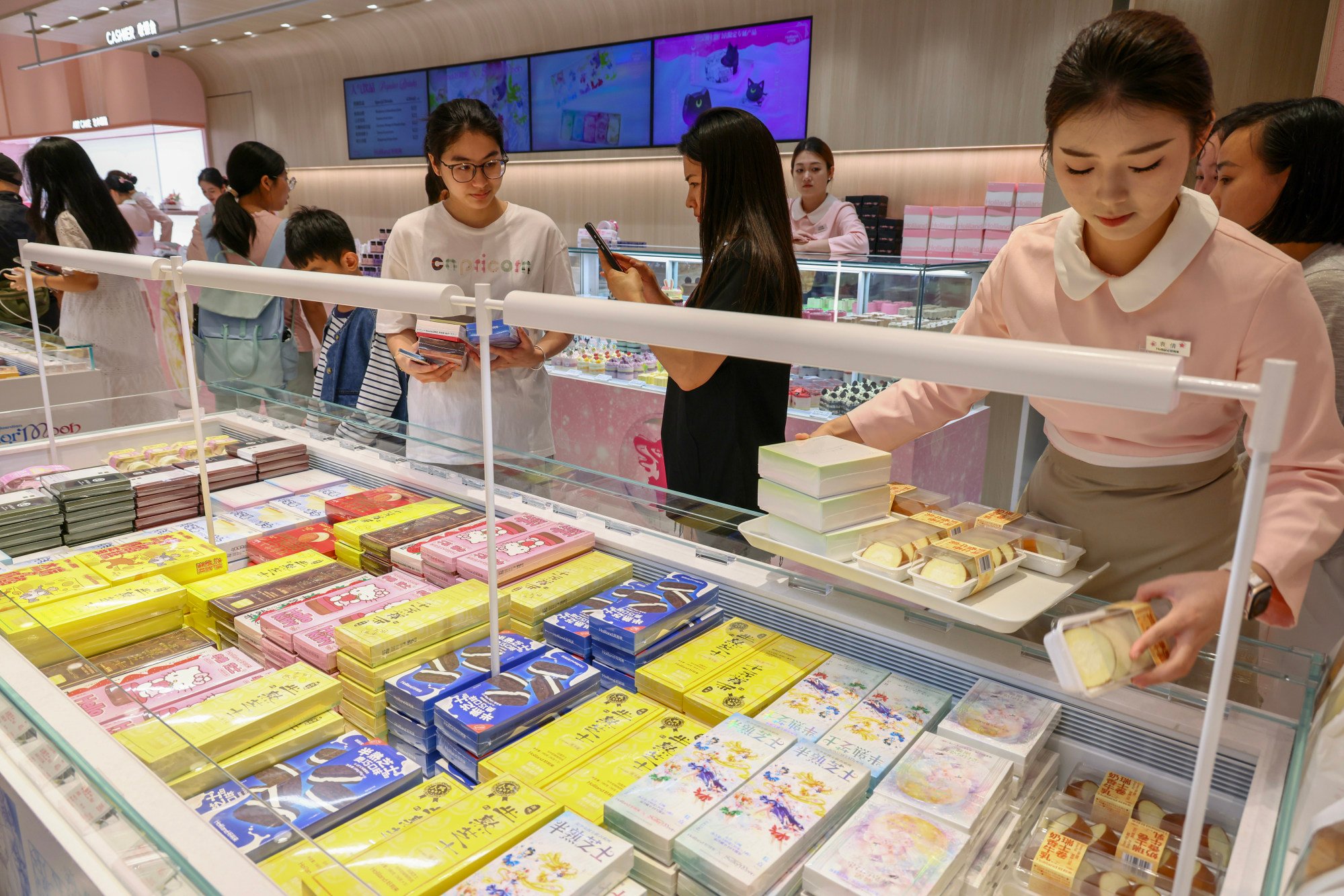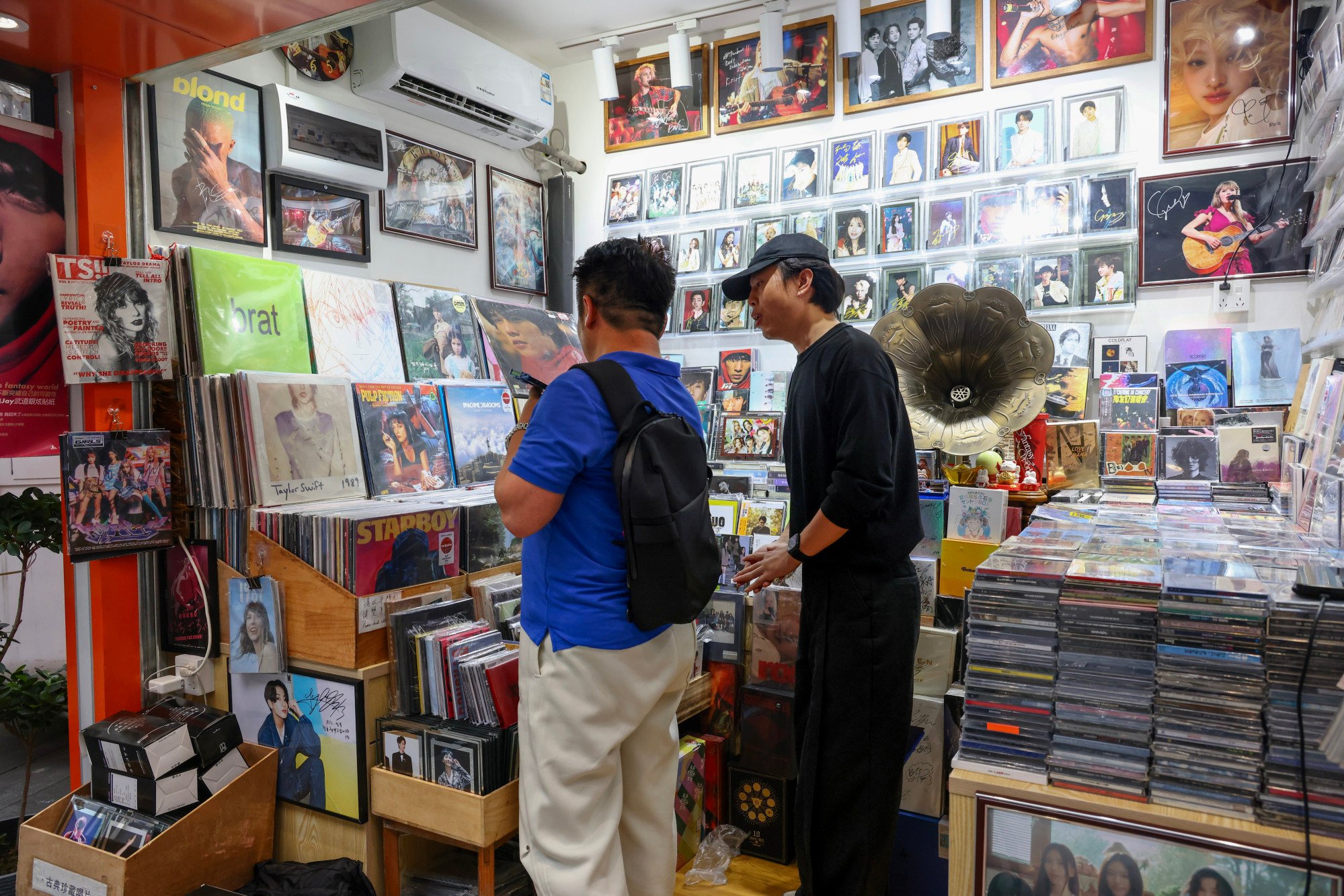The weakening of China’s currency, the yuan, relative to the US dollar is welcome news for shoppers from Hong Kong who cross the border to take advantage of better deals. However, economists caution that this trend could worsen the decline in the region’s retail sales, food, and beverage consumption, further damaging the local economy.
The People's Bank of China permitted the yuan to depreciate further against the US dollar, anticipated to enhance the export sector's competitive edge.
The central bank of China established its daily reference rate, referred to as the midpoint rate, at 7.2092 On Friday, it hit a fresh 19-month low and dropped beneath the psychologically important level of 7.2 for the first time since September 2023.
Are you curious about the most significant issues and global trends? Find out here with SCMP Knowledge Our latest platform offers carefully selected content including explainers, FAQs, analyses, and infographics, all provided by our prestigious team.
Some economists said the Hong Kong dollar would strengthen against the yuan as a result of its peg with the US dollar.
"We anticipate that the Chinese government will probably introduce extra measures to boost consumer spending. These initiatives might focus on the services industry and potentially add more challenges for Hong Kong’s retail and restaurant sectors," explained Chim Lee, who serves as a senior Asia analyst at the Economist Intelligence Unit.
He stated that the yuan was experiencing considerable downward pressure and forecasted it might reach 7.5 against the U.S. dollar for the remainder of the year, marking its lowest level since 2007.
"Stability in exchange rates is essential for maintaining confidence. A devaluation would considerably affect China’s initiatives, such as its aim to globalize the yuan and establish it as a reserve currency," Lee stated.

He mentioned that a depreciated yuan would provide residents of Hong Kong with greater motivation to look for less expensive products in Mainland China, thereby raising the probability of increased transnational shopping activities.
"Hong Kong’s retail sector, particularly for non-luxury items, has shown a decline since the last quarter of 2024. This downturn occurred alongside Mainland China's implementation of broader consumer subsidy programs, potentially diverting spending from Hong Kong to those initiatives," according to Lee.
China and the U.S. are engaged in a trade conflict following US President Donald Trump’s implementation of retaliatory tariffs on trading allies.
On April 2, Trump signed an executive order to levy an extra 34 percent duty on goods from China, which included those coming from Hong Kong. However, after successive escalations between Beijing and Washington, this rate has been raised to 145 percent.
"Since Hong Kong’s exports to the U.S. face the same tariffs imposed on goods from mainland China, this situation will act as an impediment and pose downward risks to the government's projected GDP growth," noted Carlos Casanova, a senior Asian economist at Geneva-based private bank Union Bancaire Privée.
On Saturday, the COCO Park shopping center in Shenzhen’s Futian district was teeming with visitors, among them were people from Hong Kong.

Among the residents from Hong Kong, Gigi Au was one of them. She traveled to Shenzhen to have her glasses adjusted and to enjoy a meal with her partner, Tony So.
The pair, who make trips to the mainland as frequently as twice per month, typically allocate around HK$100 (US$12.90) to HK$200 for meals and beverages during each visit.
"We choose to spend our money on the mainland due to lower prices as opposed to those in Hong Kong, along with having access to a wider variety of choices," explained So.
Au mentioned that she would go shopping for more expensive things if the yuan devalued even more and had a greater impact on pricing.
Other visitors to the Shenzhen mall on Saturday were 37-year-old salesperson Marco Hung and his spouse.
Hung mentioned that the depreciation of the yuan increased his interest in shopping from online mainland platforms because he could effortlessly compare prices and achieve significant savings without having to go through the hassle of crossing the border.
A shop owner at the mall was optimistic about the impact of the devalued currency and anticipated an increase in visitors from Hong Kong.
I believe we'll see more people from Hong Kong visiting the mainland as the yuan becomes even weaker," stated Yu Wei, who runs a record shop. "The prices of products here are considerably lower than those in Hong Kong.

Yu mentioned that about one-third of his clients came from Hong Kong, with the remaining two-thirds hailing from the mainland.
Yuen Chun-kit, aged 38, an engineer who travels to Shenzhen each weekend from Friday through Sunday for food, night life, and entertainment, mentioned that a further weakened yuan would be more advantageous for him.
"If I purchase a mobile phone case, it could be priced at around HK$60 in Hong Kong, whereas on mainland e-commerce sites, it can cost as little as HK$20 or even lower," Yuen mentioned.
A weakened renminbi may not have much impact on inexpensive goods, but it could become more notable with expensive products and services.
A further weakened yuan allows me to purchase more items with my Hong Kong dollars.
The Economist Intelligence Unit has revised its 2025 GDP growth projection for Hong Kong downward to 1.3%, below the range predicted by the local administration at 2% to 3%.
Hong Kong's retail sales continued to decline for the twelfth consecutive month in February, decreasing by 13 percent compared to the previous year to reach HK$29.4 billion (US$3.8 billion).
More Articles from SCMP
China looks for British support to uphold global trade amid escalating U.S. tariff disputes with China.
Is Xi, Kim, and Putin planning to gather at Red Square for Russia’s Victory Day celebration?
Get acquainted with the incredibly skilled drag performer Alexis Stone: this British artist skillfully employs makeup to morph into figures ranging from Madonna and Meryl Streep to Lana Del Rey. However, did an ill-fated surgical prank cross the line?
Can the U.S.-China tariff dispute conclude as swiftly as it started?
The article initially appeared on the South China Morning Post (www.scmp.com), which is the premier source for news coverage of China and Asia.
Copyright © 2025. South China Morning Post Publishers Ltd. All rights reserved.

Out Of Topic Show Konversi KodeHide Konversi Kode Show EmoticonHide Emoticon